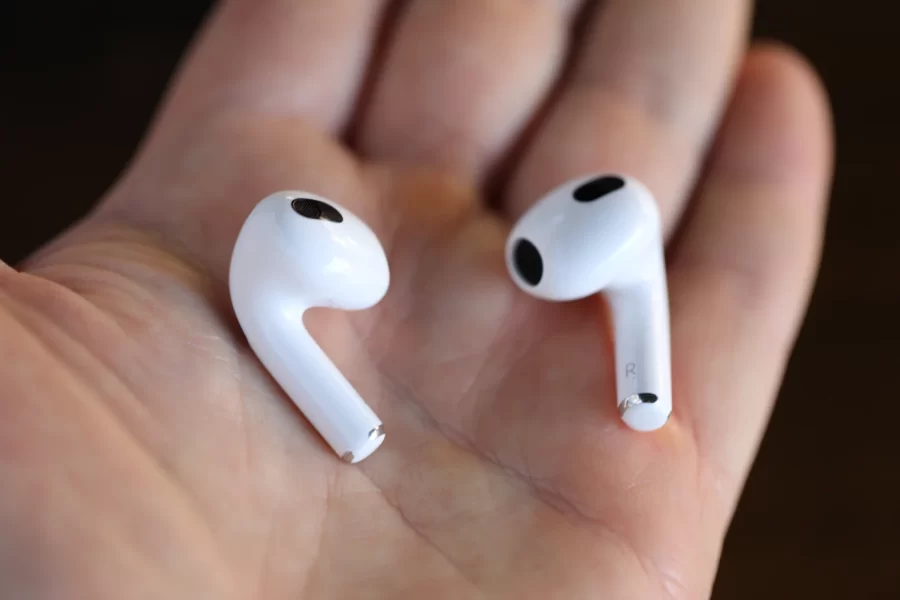Music Mayhem
“Airpods Out!” A voice rings through the air as the students fall silent, an opening cue for class to begin. Listening to music has become a daily part of many students’ lives, fueling them throughout the day and giving them motivation. It has become increasingly common to see students walking through the halls with earbuds in, mentally singing along to their favorite tunes. In theory, there’s no problem with this; It’s a solitary activity that interrupts no one else, so there’s no problem, right? Well, this is where plenty of teachers and students tend to disagree.
A separate survey was sent out to students and teachers, here at HCRHS, and while it didn’t reach many people, almost all of the responses contained similar viewpoints. The teachers were spoken with, and the few who filled out the survey, all unanimously agreed students were not to be listening to music in class during “active/explicit instruction.” However, many took a “split approach,” as one teacher called it. Despite not letting students listen to music during actual teaching, most teachers said that they didn’t see an issue with listening during independent work if it didn’t prove to be detrimental to a student’s productivity and focus. One teacher said that if we start treating students like young adults, oftentimes they will, “step up to that; rise to that.” Another pointed out that letting students listen to music all the time is not comparable to what goes on in the real world, defeating the school’s purpose to prepare students for the future. So, even amongst teachers, there are some disagreements.
A similar survey was sent out to students. Of the 64 that responded, 63 said that if given the option, they would listen to music in class. It was interesting to see that around 70% of responders said that music helps them focus, while around 20% said that it distracts them. The honest conclusion that comes from this, is that it depends on the student. Everyone works differently and is most productive through different means. Students pointed out benefits anywhere from calming them down to helping them tune out other distractions in the classroom. Even with this though, numerous students agreed that they should not be listening to music when a teacher is speaking or teaching, and that they understand why music should be limited to only independent work time.
With all of the different- and similar- opinions involving listening to music in class it seems relevant to understand some actual facts relating to the situation and where they lie. Studies show that music can actually stimulate a part of the brain called the Neocortex, which can help relaxation and reduce impulsivity. Specifically, classical, soft, or ambient music can have amazing effects, which improve mental health and can increase concentration and memory retention. Music can also act as an outlet, to help express feelings and let go. Some genres like hip-hop, are shown to be especially uplifting as well. Listening to music releases a chemical called dopamine into the brain, which makes you more determined, motivated, and likely to work towards goals. The problem is though, if music ends up distracting from your education, you are likely to have more difficulty in school, which creates a whole onset of issues, which can potentially outweigh all of the positive impacts music poses.
During school, it often seems like a never ending war between teachers and students when it comes to listening to music during class, but based on the survey and some additional research, it seems that a compromise doesn’t have to be that far off. Music can obviously benefit students in many ways, however it can also be extremely distracting and take away from a students educational experience. Which is why, a conclusion, stemmed from the above collection of research and opinions, seems to be that students should not be allowed to listen to music while someone else (ie: a teacher or a peer) is speaking or teaching, but as long as a student is responsible and shows that they can handle it, might be allowed to listen to music during completely independent work or projects. Not everyone is going to agree on that conclusion, but teachers and students alike should know that it is important to know the facts, consider someone else’s position, and make your decisions accordingly and honestly. This can apply to almost anything in life, and this war on music is no exception.











